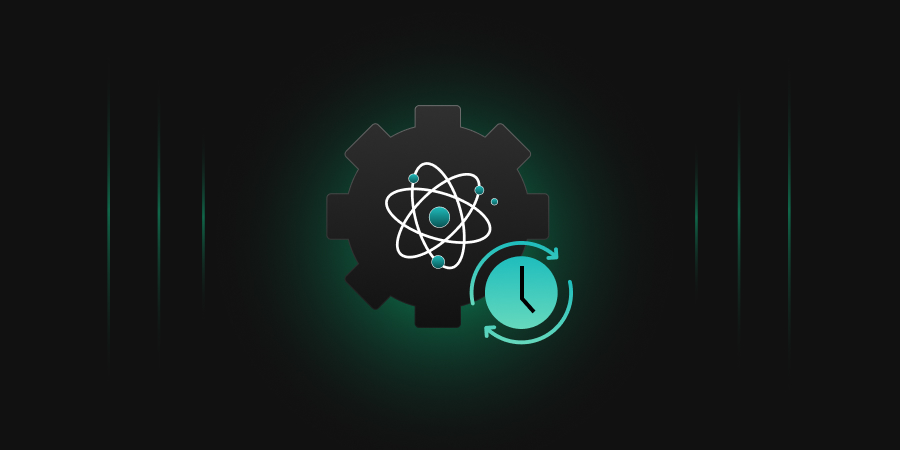- Making Research and Innovation Practical
- Building the Right Infrastructure for Quantum
- Scaling the Quantum Ecosystem Across Europe
- Supporting Startups and Investment
- Securing the Quantum Supply Chain
- Applying Quantum to Space and Defense
- Building Quantum Skills for Industry Needs
- Driving Progress Through Grand Challenges
- Partnering Globally for Quantum Growth
- Encryption Consulting’s Role in Supporting the Quantum Transition
- Conclusion
The European Commission has launched an ambitious Quantum Strategy that outlines a clear vision for positioning Europe as a global leader in quantum technology by 2030. This strategy focuses on five core areas: research and innovation, infrastructure development, ecosystem expansion, defense and space applications, and the cultivation of quantum-specific talent. At its core, the strategy aims to accelerate the development and commercialization of quantum technologies, ensuring Europe not only leads in scientific discovery but also becomes a hub for quantum-driven industry and innovation.
Making Research and Innovation Practical
Europe is using a dual-track model for research:
- Open calls will support basic scientific discovery in all quantum domains.
- Targeted programs will focus on overcoming practical challenges, such as improving quantum error correction, building long-range quantum communication networks, and miniaturizing quantum sensors.
The Quantum Europe Research and Innovation Initiative will coordinate these efforts and ensure breakthroughs reach industry faster through a lifecycle model that turns scientific ideas into real-world products.
Building the Right Infrastructure for Quantum
New facilities are being established to help researchers, startups, and companies test and validate their technologies:
- A shared network of open-access quantum testbeds is being built from existing pilot facilities.
- These include advanced environments with cryogenic cooling, vacuum systems, and precision control electronics.
This network will support faster prototyping and certification, allowing startups and SMEs to validate products without having to build costly labs themselves.
Scaling the Quantum Ecosystem Across Europe
Quantum Competence Clusters (QCCs) are being expanded across all Member States. These clusters:
- Provide regional hubs for quantum education, research, and industrial collaboration.
- Help link academic institutions, startups, and major companies across Europe.
- Act as connection points between national initiatives and pan-European goals.
The strategy also includes public procurement programs to support early adoption in hospitals, energy companies, public services, and critical infrastructure. Europe is also encouraging large corporations to co-develop quantum solutions with startups in areas such as aerospace, automotive, manufacturing, and logistics.
Supporting Startups and Investment
While public funding supports early-stage research, Europe needs to improve access to late-stage investment:
- The European Innovation Council (EIC) and European Investment Bank (EIB) are directing funds to high-potential quantum startups.
- The Scaleup Europe Fund and the Strategic Technologies for Europe Platform (STEP) aim to unlock major capital for quantum companies.
- Financial incentives and policy changes will also make it easier for private and institutional investors to support European quantum ventures.
Securing the Quantum Supply Chain
Europe is taking proactive steps to reduce its dependence on non-European suppliers for quantum components:
- A full EU-wide risk assessment of the quantum supply chain is underway, focused on materials, software, and hardware.
- The upcoming Quantum Act will support local manufacturing and reduce vulnerabilities.
- Plans include six pilot production lines, a design facility, and a quantum industrial roadmap, all launching between 2025 and 2026.
Applying Quantum to Space and Defense
Quantum technologies are already finding application in secure communication, GNSS-free navigation, and sensing technologies:
- Programs like EuroQCI and IRIS² embed quantum security into future EU satellite systems.
- Quantum clocks, optical sensors, and cold atom systems are being tested for defense and space missions.
By 2026, the EU will launch a roadmap for quantum sensing in security and defense and will fund new initiatives to bring civilian innovations into military use.
Building Quantum Skills for Industry Needs
To fill the talent gap, Europe is launching the European Quantum Skills Academy in 2026. This academy will:
- Provide centralized training and educational resources across all levels.
- Partner with universities and industry to offer hands-on training and degrees.
- Launch fellowships and mobility programs to attract top global talent.
Additional programs include a quantum apprenticeship initiative, digital competitions, “returnships” for experienced professionals, and teacher training to encourage early quantum education in schools.
Driving Progress Through Grand Challenges
From 2025 to 2027, Europe will pilot two major “Grand Challenges”:
- One to build fault-tolerant quantum computers that can solve complex problems.
- Another to create quantum-based positioning and timing systems for use where GPS is unavailable.
Startups selected for these programs will receive funding and technical support from both public and private partners. More Grand Challenges could follow in areas like quantum medical imaging.
Partnering Globally for Quantum Growth
Europe is engaging with like-minded countries including Japan, South Korea, Canada, and the U.S. to align on standards, research, and infrastructure. The EU also plans to:
- Launch new multilateral initiatives.
- Increase its involvement in international quantum alliances.
- Shape global rules and ethics around quantum development.
A Quantum International Cooperation Framework will be created to guide these efforts.
Encryption Consulting’s Role in Supporting the Quantum Transition
As the quantum era approaches, organizations must prepare to shift from traditional cryptography to quantum-resistant systems. Encryption Consulting offers a comprehensive PQC Advisory Service to support this transition. Our services include:
- Assessment: We help you identify where your organization uses cryptographic assets, such as keys, protocols, and certificates, and evaluate their exposure to quantum threats.
- Strategy: We develop a detailed migration roadmap that prioritizes systems based on data sensitivity, cryptographic lifespan, and business impact.
- Implementation: Our team deploys hybrid cryptographic solutions, automates lifecycle management certificates, and ensures you stay compliant with the latest standards.
Our expertise in PKI, HSMs, cryptographic governance, and compliance frameworks enables us to support governments, enterprises, and regulated industries as they prepare for the quantum era.
Conclusion
Europe’s Quantum Strategy is a bold and detailed roadmap to becoming a global leader in quantum technology by 2030. With investments in infrastructure, education, research, and secure supply chains, the EU is laying a foundation for leadership not just in innovation, but also in industrial adoption and security.
As quantum technologies begin to transform cybersecurity, communication, and defense, proactive preparation becomes a necessity. Encryption Consulting stands ready to help you navigate this transition with tailored assessment, strategy, and implementation support.
Read the full report: https://digital-strategy.ec.europa.eu/en/library/quantum-europe-strategy
- Making Research and Innovation Practical
- Building the Right Infrastructure for Quantum
- Scaling the Quantum Ecosystem Across Europe
- Supporting Startups and Investment
- Securing the Quantum Supply Chain
- Applying Quantum to Space and Defense
- Building Quantum Skills for Industry Needs
- Driving Progress Through Grand Challenges
- Partnering Globally for Quantum Growth
- Encryption Consulting’s Role in Supporting the Quantum Transition
- Conclusion




